Bulgaria is situated in South-Eastern Europe, in the North-Eastern part of the Balkan Peninsula. It is a European, Balkan, Black sea and the Danube country. This geographical position puts it at the crossroads of Europe, Asia and Africa.
Bulgaria falls in the southern part of the moderate climate zone with influence of subtropical climate which provides excellent climatic conditions for life. Bulgaria is a small country, but with a very diverse topography and several completely different climate zones. Within a radius of 40 kilometers. from the black sea climatic zone is formed completely under the influence of the sea, which can be divided into two parts North and South. The North coast of the country is characterized by a temperate climate with a pronounced Maritime influence. The winters there are more severe with strong winds, and the sea water temperature in summer is about 2 degrees lower than in the South. The southern black sea coast has a clearly noticeable influence on subtropical. Summer is warmer with more Sunny days, the temperature of the sea water is about 23 to 26 degrees. The winter is mild with rare freezing temperatures. At a distance of 40-50 km from the border with Turkey, the climate on the southern coast of the black sea takes place entirely in a subtropical climate. In the Arkutino natural reserve there can clearly be seen a dense subtropical fauna, and along of the dunes in the reserve, wild cacti. In the Central part of the state the climate is completely temperate-continental. Bulgaria is a small country, but extremely diverse with mountains in the higher part of which the climate has a pronounced mountainous character with cool and short summers and long, cold and snowy in winter. The conditions for ski tourism in the winter are just perfect. The largest peak on the Balkan Peninsula is located in the Rila mountains, Musala peak with a height of 2925 meters. The most famous mountain resorts in Bulgaria are Bansko, Pamporovo and Borovets.
The official time in Bulgaria is Eastern European, which is two hours ahead of Greenwich Mean Time.
Bulgaria is a natural crossroads between Asia and Europe, making it a convenient starting point for excursions in Turkey and the Middle East as well as all over Europe
The total length of the Bulgarian borders is 2,245 km, of which 1,181 km are land, 686 km river and 378 km-sea. Bulgaria has borders with Romania, to the East with the Black sea, on the South – with Turkey and Greece in the West with Macedonia and Serbia. The distance between Sofia and the capital of the neighboring Balkan States are: Skopje is 239 km, Belgrade is 374 km, Bucharest is 395 km, Athens is 837 km, Ankara – 1012 km.
The capital of Bulgaria is the city of Sofia with a population of 1 426 519 people, the other largest cities in the country are Plovdiv with a population of 345 000, Varna with a population of 335 000 and Bourgas with a population of 220 000 people.
The total population of Bulgaria is about 7 million on NIS assessment as at 31 December 2017, with 73.5% of the total population living in cities. The majority of the population 84.8% are ethnic Bulgarians, 8.8% are Turks, 4.9% are Gypsies and 1.5% are Russians, Armenians, Wallachians, Karakachans, Ukrainians, Jews, Romanians. The official language of the country is Bulgarian. The main national religion in the country is Orthodox - Christian.
Traditions and customs are an indispensable part of the life of Bulgarians. They are honored, carefully guarded in the years and kept in the family. Bulgarian customs are rooted in the distant past and are closely intertwined with history and Christian religion.
 Nestinarstvo or dances on fire is a very old Bulgarian custom, which has been practiced in several villages in Strandja Mountain. The ritual in its authentic form takes place on St. St. Constantine and Elena Day - 21 May or 3 June (old style). The fire-dancers are preparing for the dance, all day hanging in a chapel guarding the icons of St. Constantine and Elena and listening to drums and ducks performing the special nestinarian melody, and then often fall into a trance. At night they perform their special dance on the coals. The dance is always held with two arms icon of St. Constantine and Elena. Interestingly, they never hurt or burn their legs.
Nestinarstvo or dances on fire is a very old Bulgarian custom, which has been practiced in several villages in Strandja Mountain. The ritual in its authentic form takes place on St. St. Constantine and Elena Day - 21 May or 3 June (old style). The fire-dancers are preparing for the dance, all day hanging in a chapel guarding the icons of St. Constantine and Elena and listening to drums and ducks performing the special nestinarian melody, and then often fall into a trance. At night they perform their special dance on the coals. The dance is always held with two arms icon of St. Constantine and Elena. Interestingly, they never hurt or burn their legs.

Kukeri or men dressed in scary clothing and in animal skins are another local tradition that has its analogues in other societies around the world. Kuker games are special ritual rituals, most often held during New Year's Eve and Zagowezni. They are performed only by men who wear pre-made special masks and costumes made by each participant. With kukeri and their ritual dance, people chase evil forces and demons at the beginning of each year to continue to purge them clean and loaded with positive energy.
Ladowanie is another interesting custom, which is held on New year, on St George's day, Midsummer and Lazarica. It purpose is girls to predict who you are going to get married, in special rituals they pray and ask the goddess of the Love and Family Lada to tell them to whom they will be married to.
Lazarus is a ritual that connects the coming of spring. It takes place at Lazarovden, 8 days before Easter. The date of the holiday varies, but it is always on Sunday, a day before Tcvetnica. On this day, willow branches are used to decorate the entrance doors of the houses on the next day. Then the young girls in the village collect wild flowers from which they will knit wreaths of flowers. On Saturday, the girls gather at the home of one of them and prepare themselves in festive clothes decorated with flowers and twigs. Then they go through the village and from house to house sing songs and bless for health and good harvest. The hosts welcome them and donate them with small gifts.
Perhaps the most significant symbol of Bulgaria is the custom of making and giving martenitsas for health and prosperity in the beginning of March. For Bulgarians this is a symbol of the new beginning, health and good harvest.
In Bulgaria, the life-cycle traditions of birth, baptism, wedding and funeral are of special tribute. The name days are also celebrated in the country, the most famous of them being Ivanovden, St. George and Dimitroven.
The biggest holidays celebrated by the Bulgarians are undoubtedly Christmas and Easter - this is the time when the whole family gathers, several generations celebrate together, united by the feeling of belonging to the healthy Bulgarian family..
The Bulgarians are very hospitable people, friendly and always willing to help if someone needs help, guests and friend have always been warmly welcomed by the Bulgarians.
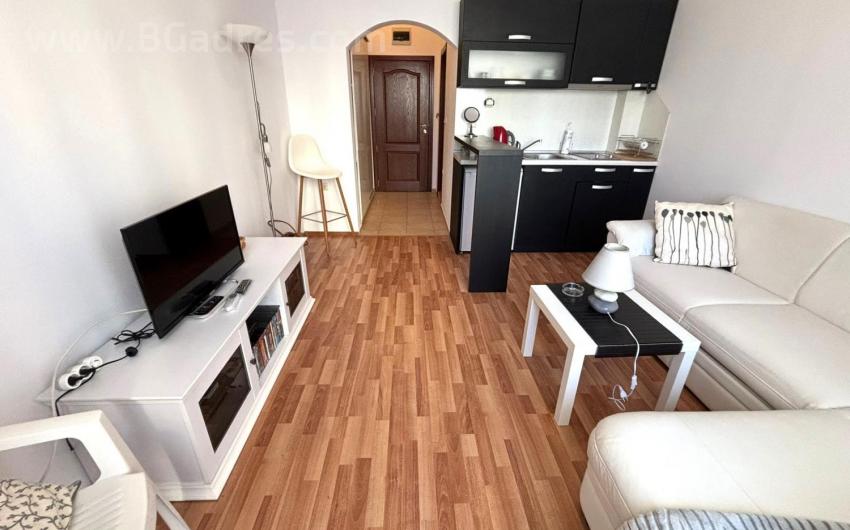 65 000 € Sunny Beach
65 000 € Sunny Beach 88 500 € Sveti Vlas
88 500 € Sveti Vlas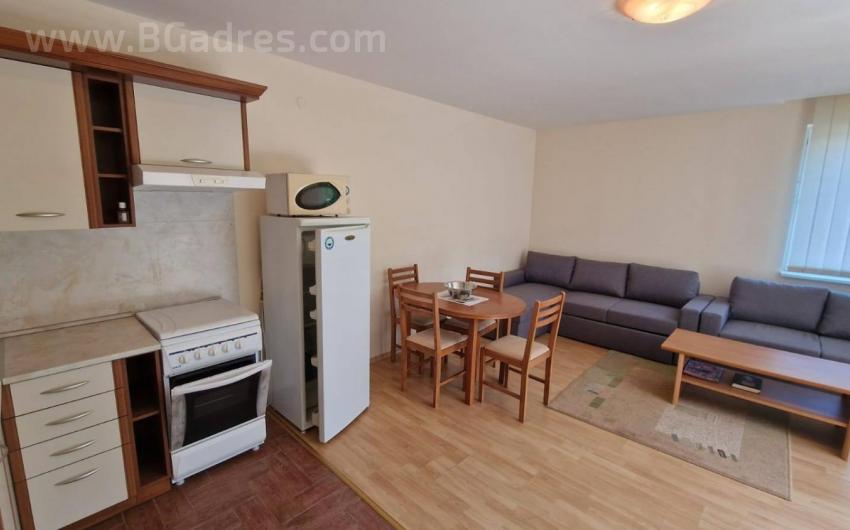 69 900 € Elenite
69 900 € Elenite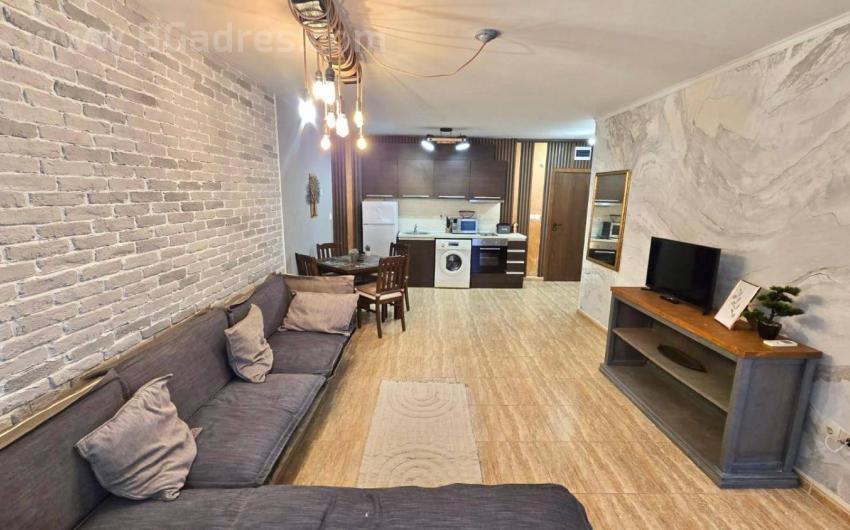 136 000 € Sveti Vlas
136 000 € Sveti Vlas 127 000 € Sveti Vlas
127 000 € Sveti Vlas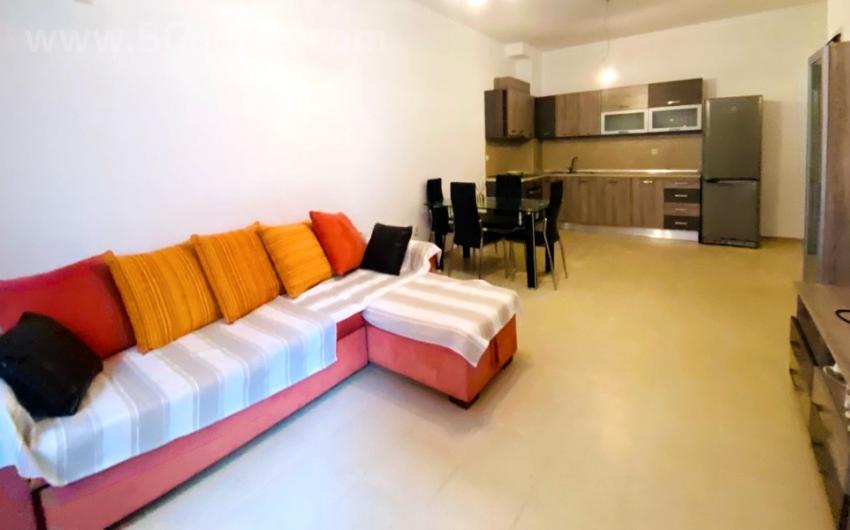 99 900 € Pomorie
99 900 € Pomorie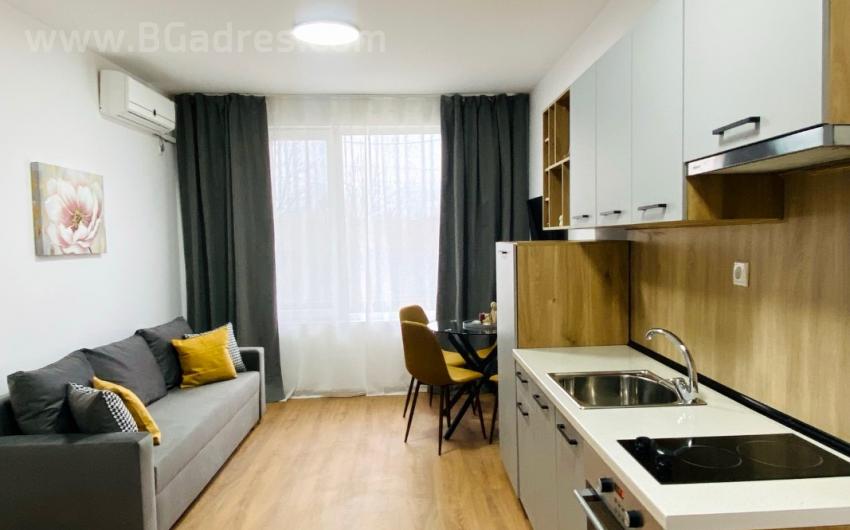 67 750 € Sunny Beach
67 750 € Sunny Beach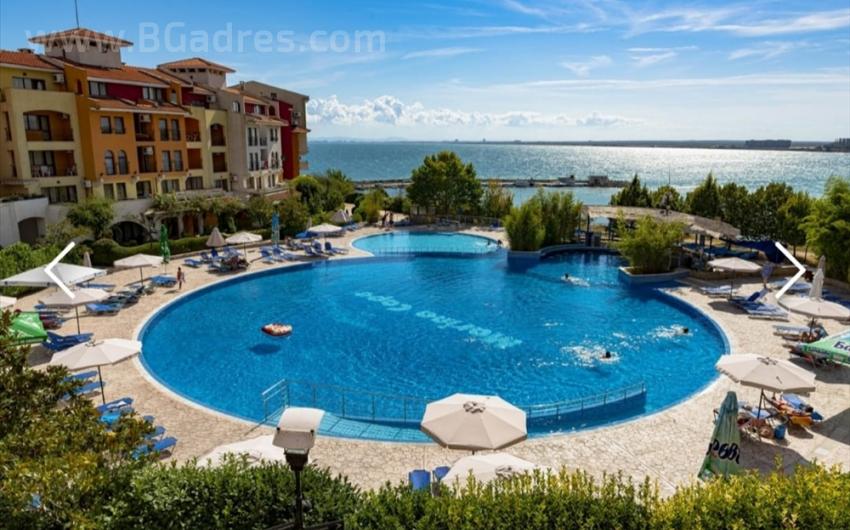 56 000 € Aheloy
56 000 € Aheloy






